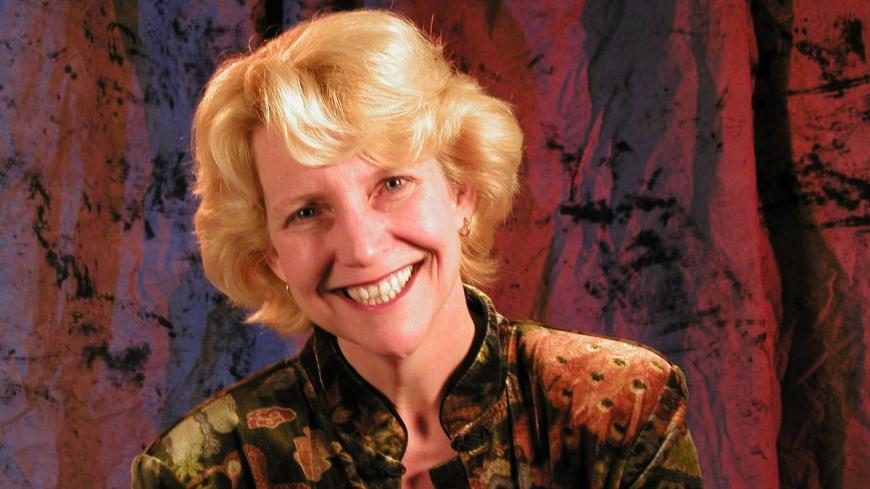
After 35 years as one of the defining voices of Bay Area jazz radio, Alisa Clancy is bidding the airwaves a reluctant farewell.
She’s best known to jazz fans and car-bound commuters as the Tuesday-through-Friday host of A Morning Cup of Jazz, which airs from 6 to 10 a.m. But Clancy is far more than a DJ. She conducts wide-ranging on-air interviews with musicians, who often come in to discuss their favorite albums on the consistently enlightening feature Desert Island Jazz. A tireless champion of the local scene, Clancy is always quick to play a new release by a Bay Area artist.
“When musicians submit interview requests, she gets them directly,” says Chris Cortez, KCSM production manager and co-host of Mid-Day Jazz. “We are the Bay Area’s jazz station, and she’s always wanted to have that regional vibe, pumping up the heroes and heroines of the local scene, promoting these artists and giving them a voice. She’s always had her ear to the ground. Her taste is wide and eclectic.”
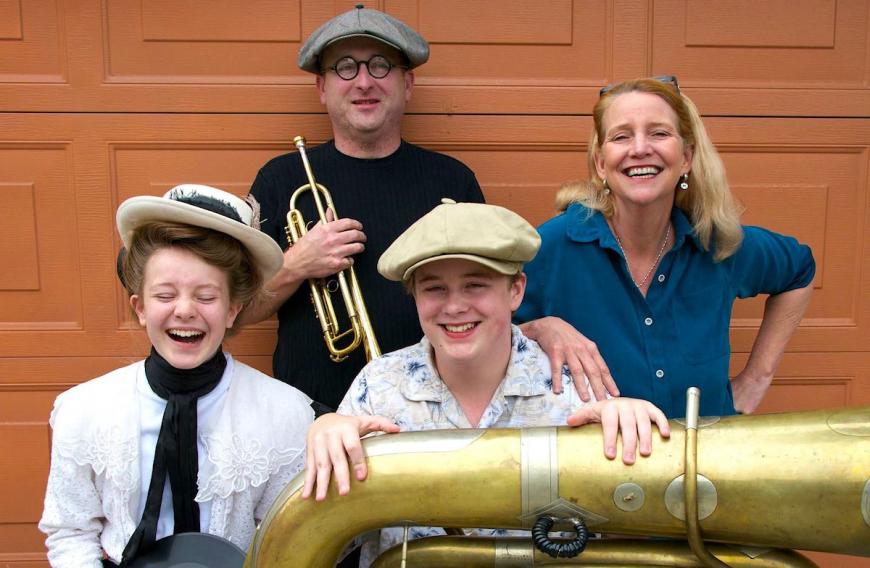
This is her last week on the air, and Clancy is going out in style with a series of thematic shows that give a good sense of her scope and her rollicking good humor. She kicks off her final run June 29 listening back to past theme shows with her “pledge husband” Chris Phillips. On Wednesday she’ll be joined by her actual husband, multi-instrumentalist and traditional jazz master Clint Baker, and their twins, the accomplished 20-year-old musicians Ramona and Riley Baker (all of whom have figured prominently in her shows over the years).
On July 1, she joins forces with Kathleen Lawton, host of KCSM’s Crazy ’Bout the Blues, for a celebration of women blues icons. She takes a final bow on Friday with longtime KCSM host Michael Burman and surprise guests, looking back over past Desert Island segments and other projects dear to her heart. But for Clancy, the high note she’s departing on is best reflected in the station’s resilient response to the pandemic, when KCSM served as a steady antidote to sheltered-in-place isolation.
“We really met the time with the music, and the community aspect of the station just blossomed,” Clancy said. “I felt closer to every constituency and tried to keep us all together. It became what community radio really should be.”
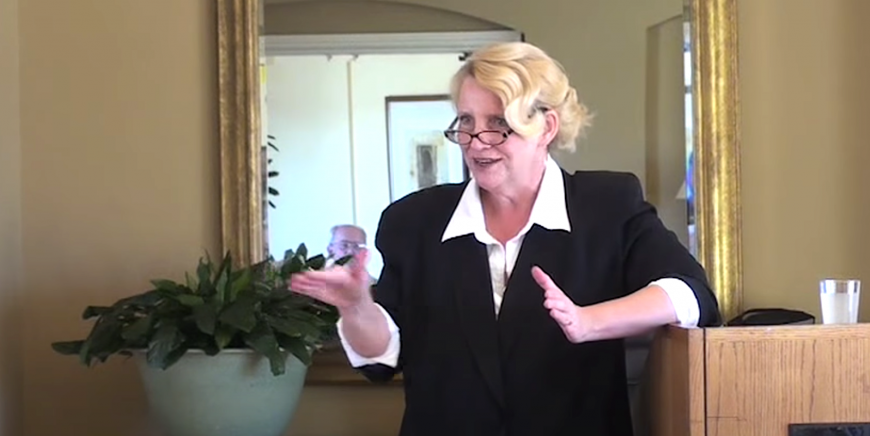
While Clancy is known for her big, theatrical personality that tends to fill a room, she’s also a force away from the microphone. Behind the scenes, she’s kept the station running, first during a 13-year stint as operations director, and for the last dozen years as program manager, an essential role at the station that became even more central during the pandemic. At 60, she figured she’d reach the four-decade milestone at KCSM, but a series of conflicts with the station manager Dante Betteo left her in an untenable position.
“During the pandemic he’d laid down rules that we weren’t allowed to stay and work after a shift, but all our materials are there,” she said. “I made the mistake of picking up the phone at 10:20 one day and he screamed at me because I’m still there. ‘You are not authorized!’ He was not writing anybody else up for these infractions. They didn’t come right out and fire me. They do progressive discipline. Dante started writing me up for things like cussing or coming into work early. You get five write ups, and then they ask you to resign.”
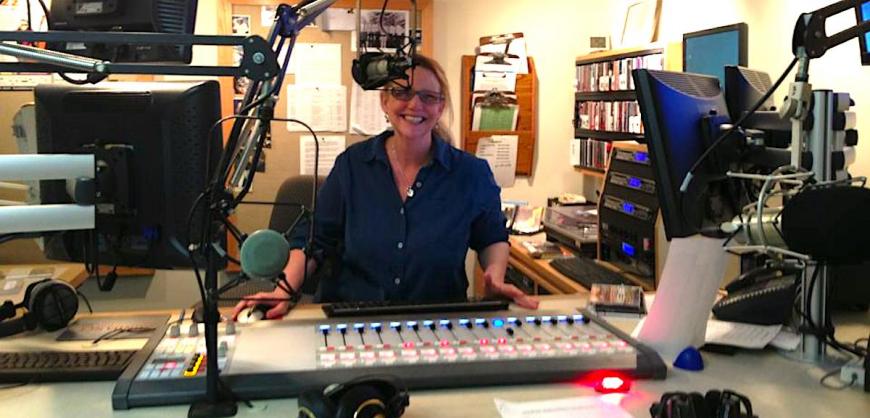
She believes the initial seeds for her exit were planted in 2017 when she pushed back against a plan that would have cut back on the part-time DJs who serve as the Bay Area jazz scene’s institutional memory. Taken together, veteran KCSM DJs Sonny Buxton, Richard Hadlock, Dick Conte, Clifford Brown Jr., and Greg Bridges represent nearly three centuries of experience soaking up jazz on and near bandstands. The perspective and insights they provide on jazz’s history and evolution in the Bay Area can’t be attained anywhere else.
Clancy worries that her forced retirement and the lack of plans to fill the program manager position speak to the San Mateo County Community College District’s lack of commitment to KCSM, which is now down to seven full-time staff members. Betteo didn’t return numerous calls and emails seeking comment, but SMCCD Spokesman Mitchell Bailey said that “the district is committed to keeping KCSM as a jazz station,” while declining to respond directly to Clancy’s account of facing termination, resignation, or retirement.
“The station and the district thank Alisa for her years of service and wish her well in her retirement,” Bailey said. “The district does not comment on individual personnel matters. The decision of employees to retire is a personal one, not one directed by the district.”
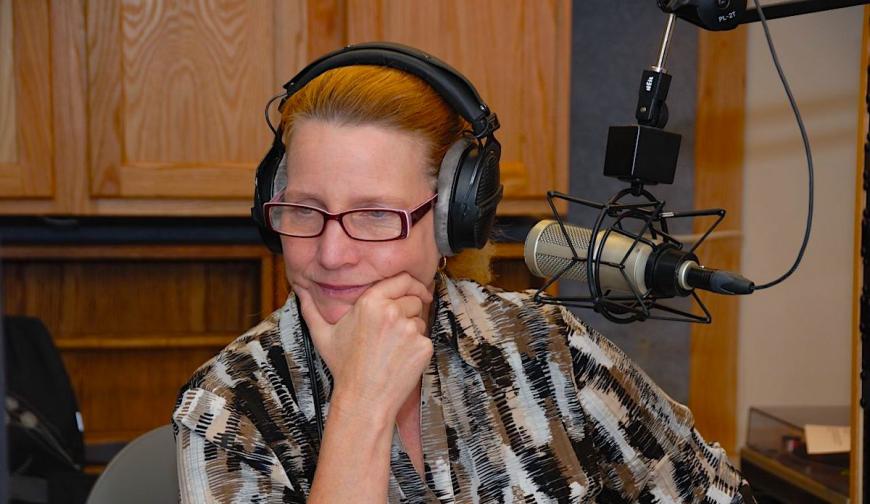
KCSM is located at and licensed through the College of San Mateo, which is run by the San Mateo County Community College District (a three-campus system that includes Redwood City’s Cañada College and Skyline College in San Bruno). The station is by far the highest profile entity associated with the district, giving it visibility and cultural reach far beyond the Peninsula.
When the district has made news in recent years, the headlines have not reflected well on the institution. There was the bungled sale of broadcast spectrum in 2017, which meant the district missed out on tens of millions of dollars. With no golden egg, SMCCD sold the KCSM television station to a tiny public station in Cotati that raised $72 million in the FCC spectrum auction (bandwidth avidly sought by cellphone service providers).
And then there’s the messy divorce with former Chancellor Ron Galatolo, who led the district for nearly two decades and was terminated in February while under criminal investigation by the county’s District Attorney’s office. As reported in The Mercury News, the district is seeking to claw back more than half a million dollars in compensation from Galatolo, who was terminated with a letter that “accuses him of receiving ‘high-end travel,’ concert tickets, and meals from college district contractors and not disclosing it to the state, as required ... as well as ‘undisclosed personal relationships with vendors.’”
Meanwhile, many close observers of the Bay Area jazz scene worry that the district undervalues KCSM, a station with a national reputation for attracting deeply informed DJs (Richard Hadlock, author of the classic book Jazz Masters of the ’20s, was presented with the Jazz Journalists Association Marian McPartland-Willis Conover Award for Lifetime Achievement in Broadcasting last year).
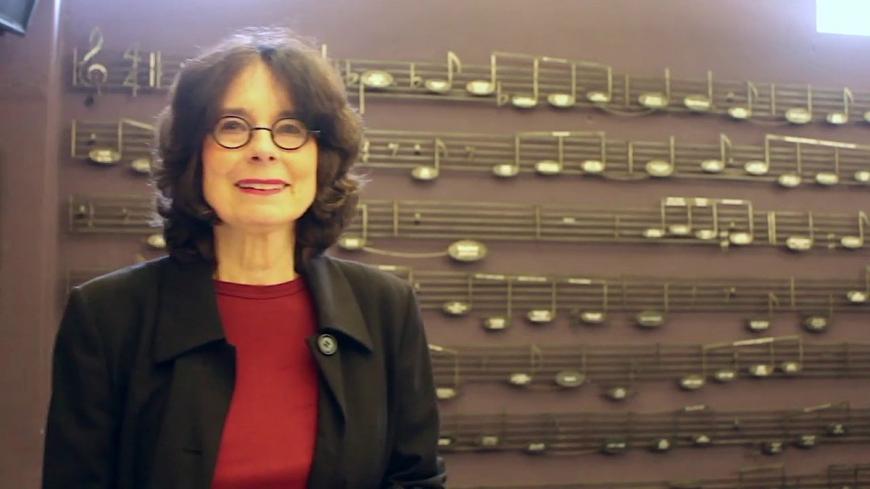
Pianist Susan Muscarella, the founder and president of the California Jazz Conservatory, describes KCSM is an essential part of the jazz ecosystem. “It’s such an invaluable resource it’s hard for me to believe the school district would want to let it go, given what it contributes to the Bay Area,” she said. “In a way, Alisa herself really represents what KCSM brings to all of us. She’s someone you can always count on, day in and day out. She’s always been a glass half-full person, and in the jazz business you have to be a half-full person to survive.”
Jazz has played a central role in Clancy’s life since adolescence. As a teenager growing up in the San Diego area in the 1970s, she got turned onto the music in her junior high band playing drums and piano. She gravitated to college radio and learned the studio ropes at WKYU during her undergrad years at Western Kentucky University. She went on to spin jazz and classical records at WFDD at Wake Forest University while earning her master’s in theater. She worked in theater for several years before landing in the Bay Area in 1987.
Looking to break into radio she reached out to KJAZ, the Bay Area’s commercial jazz station. The reception was less than welcoming. “I talked to somebody and they just dismissed me right out of hand,” she recalled. “He said ‘We already have one woman on the air. We don’t need another one.’ KCSM was also running at that time, doing jazz at night. I called Clifford Brown Jr., who was the program director at the time, and he said ‘Come on in. Let’s talk.’”
She quickly became an indispensable part of the KCSM team, particularly when KJAZ folded in 1995 and Pat Henry donated the station’s vast record collection to KCSM, which cemented its standing as a full-time jazz broadcaster. Talking to people across the Bay Area jazz scene, Clancy is often described as the station’s “mama bear,” a maternal characterization that’s partly due to the fact she’s been bringing the twins into work since they were infants. As a jazz DJ, she’s hailed for her catholic taste, her commitment to the art form, and her love of musicians.
“She has a musical curiosity that made her interested in a lot of things going on in the Bay Area,” said Massimo Chisessi, director of marketing for San José Jazz. When a rising tide of young musicians combining jazz with soul and hip-hop started playing Bay Area stages in the years before Los Angeles tenor saxophonist Kamasi Washington became a superstar, Chisessi notes that Clancy was eager to keep tabs on the rising scene.
He suggested she team up with a young South Bay writer named Brandon Roos, “and I was delighted and impressed by her ability to take that idea and see the potential in it,” he said. “She hosted the show with him and he selected the material. She was really curious about the music that was finding an audience with these 20-somethings.”
For Clancy, it was just another opportunity to connect. She’s a talker, and a listener who likes nothing more than coaxing people into revealing what makes them tick. “I love talking to people,” she said. “As much as we all share the human condition, we all have a great story. And you can go deeper and deeper.”




